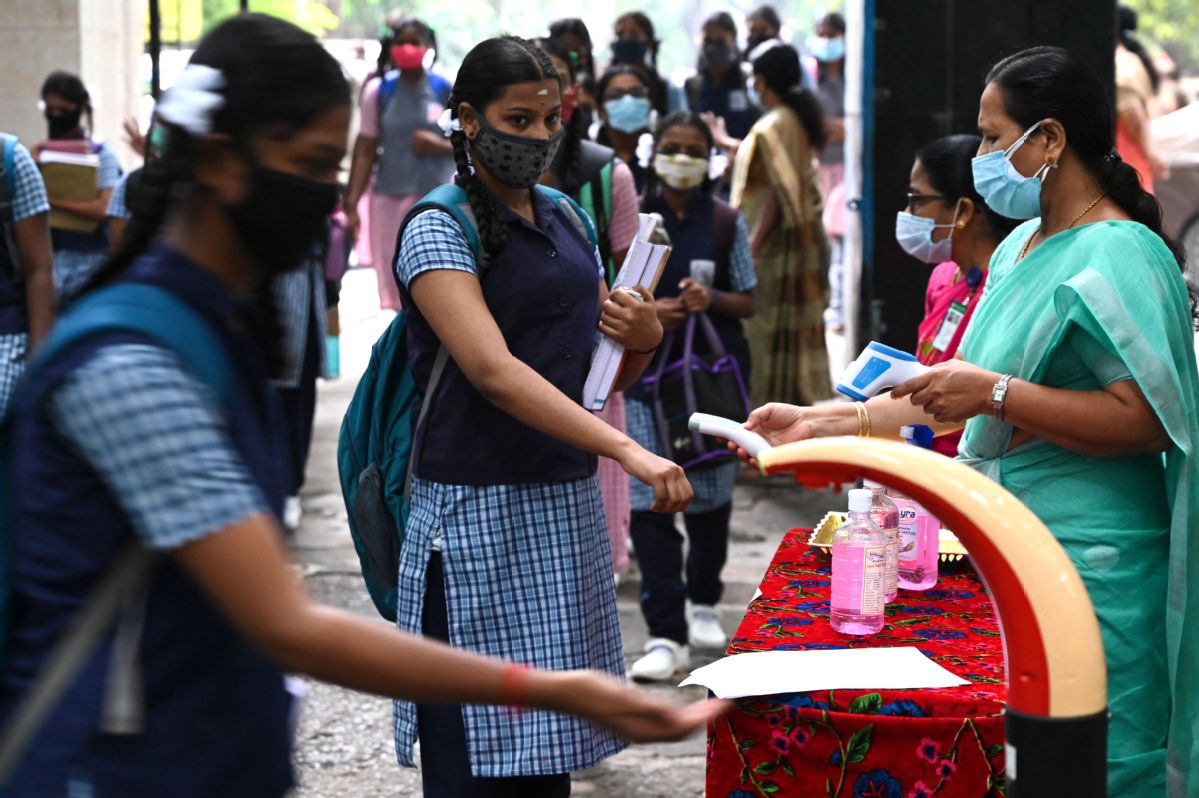India's schoolkids confront 'new normal'


With the pandemic disrupting curriculums in many ways, experts warn of a 'lost generation'
The Indian state of West Bengal recorded a near perfect pass rate among tenth graders in its provincial examinations this year.
However, instead of jubilation, educators are downcast and worried. That is because, with curbs in place due to the COVID-19 pandemic, schools were unable to hold physical examinations and students were awarded marks liberally based on internal school assessment.
This disappointing anomaly highlights a pandemic-stricken academic year leading to a grave social crisis in the making. "The results clearly demonstrate the intensity of the crisis we have found ourselves in," said the vice-chancellor of a university, who declined to be named.
For young pupils, not going to school does not just mean loss of learning or forgetting what they learnt in their previous classes, educators said.
"It's a loss of childhood for many young children," said Satyam Roychowdhury, managing director of Techno India Group, which runs more than 30 public schools in India.
With COVID-19 and the consequent school closure, educational and economic disparities in India will become more pronounced than ever, said Roychowdhury. "This is a serious problem for the country."
Indrani Ganguly, a former school principal, fears that when these children grow up, they might see themselves as a "lost generation", whose lives will never be disconnected from a global pandemic.
The pandemic is the gravest crisis for today's children, Ganguly said."Since the poorest will be hardest hit by all of these effects, lockdowns are expected to widen the existing inequalities," she said.
The lockdown may hit the children of first-generation learners, the kids whose parents are illiterate, hard, said Banani Kundu, a high school teacher in Kolkata.
"For the economically challenged, online education is a big challenge. Most homes have more than one child. Some even have three to four children sharing one room and one smartphone if they are lucky," she said.
"Making a sense of what a teacher is saying on the phone in a crowded and, often noisy home is tough for kids. They cannot concentrate,"Kundu said.
"How can I concentrate on my class when there is something constantly happening that's disturbing me," said a student at a local municipality school in Delhi, who did not wish to be named.


















